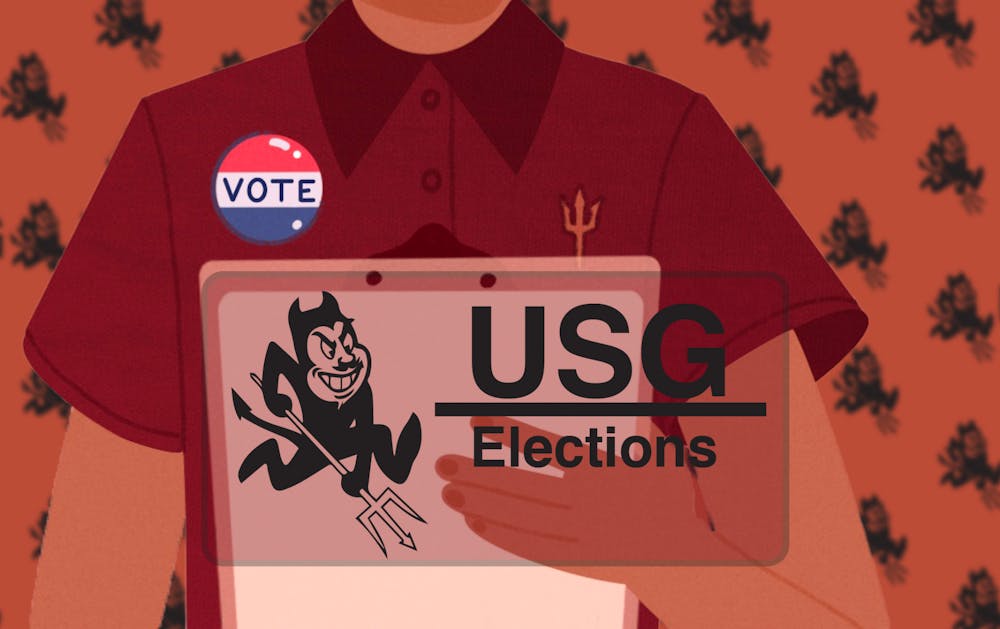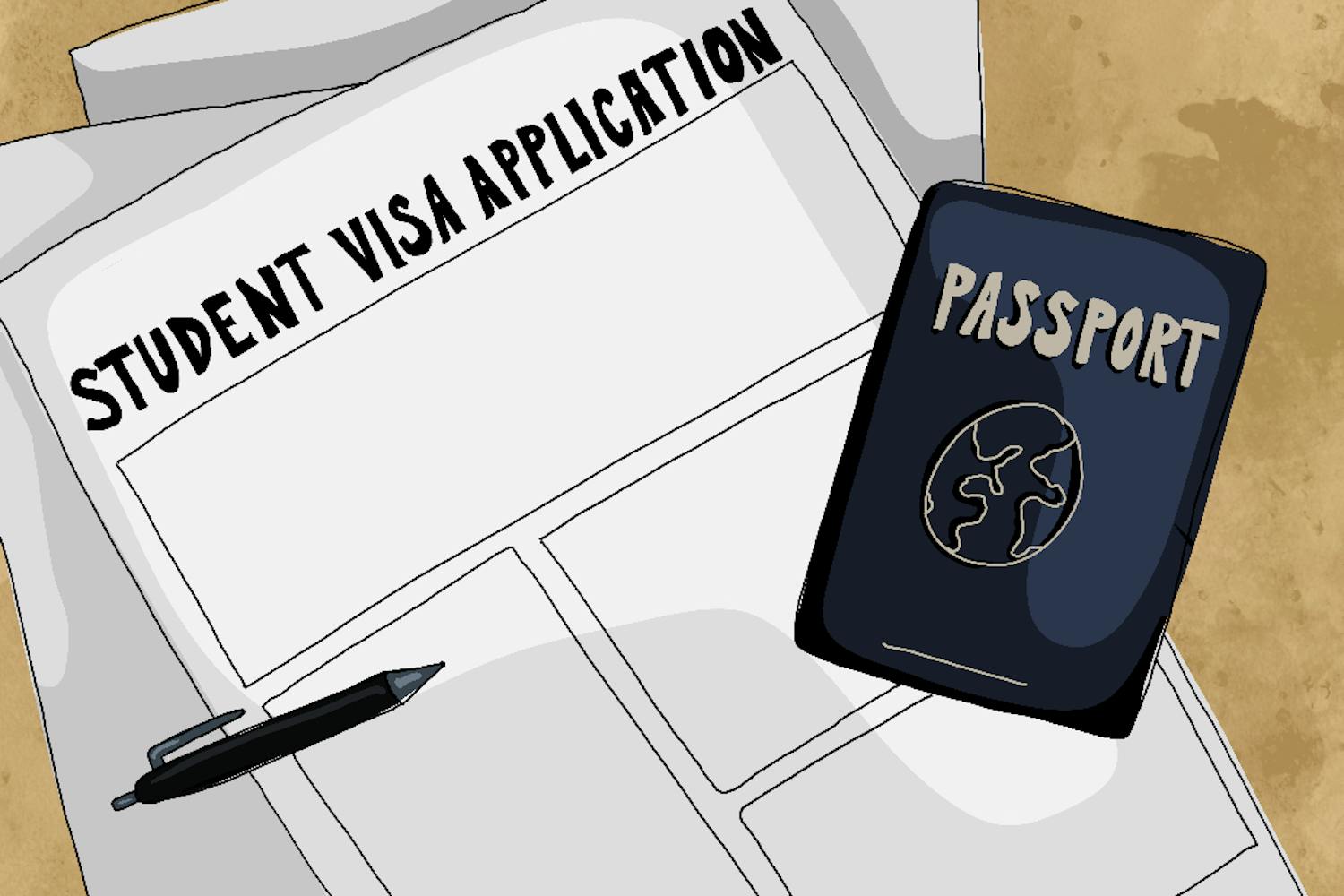The Associated Students of ASU will vote on amendments to the election code that could unite graduate and undergraduate student governments and change the necessary qualifications to become University leadership.
ASASU consists of five student governments across the four campuses: the Undergraduate Student Governments at the Downtown Phoenix, Polytechnic, Tempe and West Valley campuses, and the Graduate and Professional Student Association.
Previously, the USGs had one election code and GPSA had another. Michael Kintscher, a GPSA parliamentarian, said this is the first time these organizations will create a joint election code for ASASU as a whole.
"That means that no matter what office you're running for or what government at ASU, you will have a consistent set of rules around campaigning and requirements to run for office," Kintscher said.
This vote follows the failed attempt to pass a new election code at the Nov. 3 ASASU meeting. Drew Stanek, the president of the Downtown Phoenix USG Senate, attended this meeting and said he was surprised by their inability to come to an agreement.
"Everyone gets passionate, so there is some debating that happens. I've only been part of USG for two years. I don't know if this has ever happened in the past before, but it's the first time I've seen that the election code has not been passed at the meeting," Stanek said.
Amendments to the code have been debated, including requiring a public debate between candidates running for executive offices, requiring presidential candidates to have served in USG prior to their campaign, and allowing students with prior disciplinary issues to run for president.
"We have a good idea for what amendments are going to pass, but we still have to send out the final draft next week," Stanek said. "And after we get the vote on that if it passes, that's the election code."
As a response to previous controversial student government elections, this election code is a step toward eradicating future election issues.
READ MORE: Morgann Kelly elected USG Tempe president after ASASU Supreme Court reversal
"The elections have been quite turbulent the past couple of years, both on the undergraduate and the graduate side, definitely both for different reasons," Kintscher said. "But a lot of that has been poor policy that's built up over the years … without a focus on redesigning the system from the ground up."
Some of these election issues are a result of the ambiguous language used in the current code, which has created misinterpretation, confusion and conflict among student government officials.
"The big changes were really around language and the context and syntax of the election code, because last year we were finding that it was sometimes being used to weaponize against other candidates," Stanek said. "So that's why we wanted to do these bigger changes here – because it makes it more clear and accessible for everyone to read and understand."
For the average ASU student, these revisions may introduce them to their student government officials for the first time. Kelly Baur, the assembly president of GPSA, said the potential updates would help with the democracy of ASASU and the transparency of elections that students participate in.
"That's the very cool thing about this opportunity – it's really ensuring that ASU student government has much more democratic, transparent, and hopefully not volatile elections moving forward," Baur said.
ASU students will be able to access the new elections code when the election cycle begins in February.
"This is kind of historic. It's a cooperation between all of these student governments at ASU and a recognition that we have different programs," Kintscher said. "At the end of the day, we are all students at the same University. And this is an incredible level of cooperation, seeing what's possible for our student body."
Edited by Alysa Horton, Sadie Buggle and Grace Copperthite.
Reach the reporter at brenna.gauchat@gmail.com and @brenngauchat on X.
Like The State Press on Facebook and follow @statepress on X.




